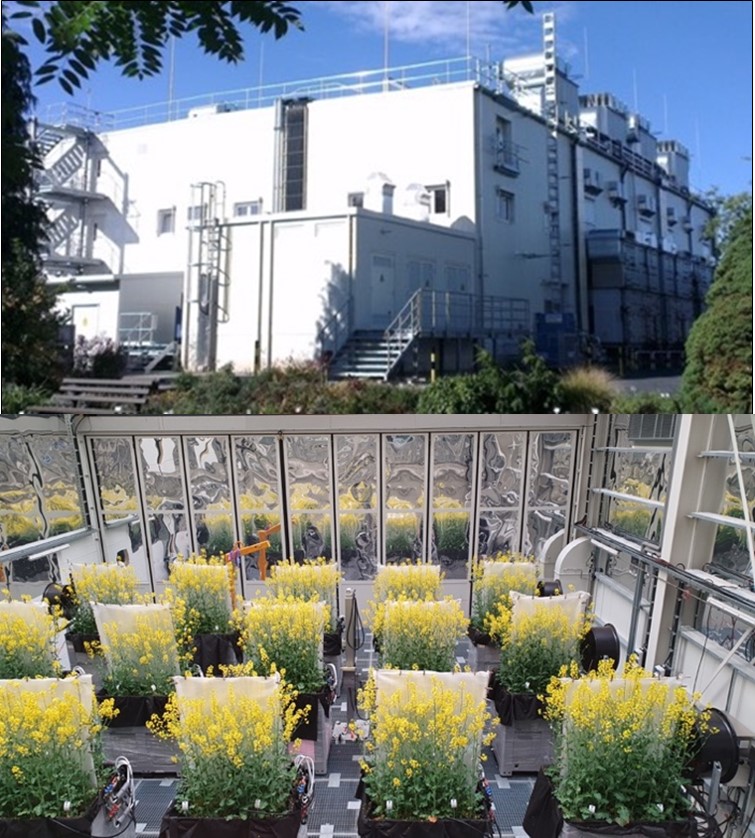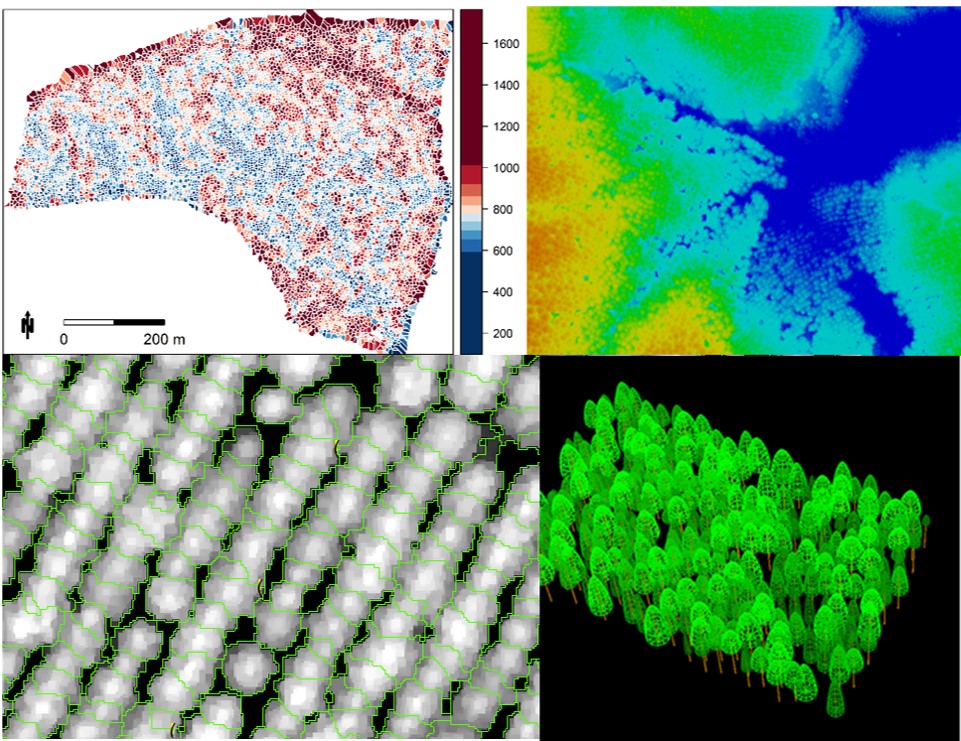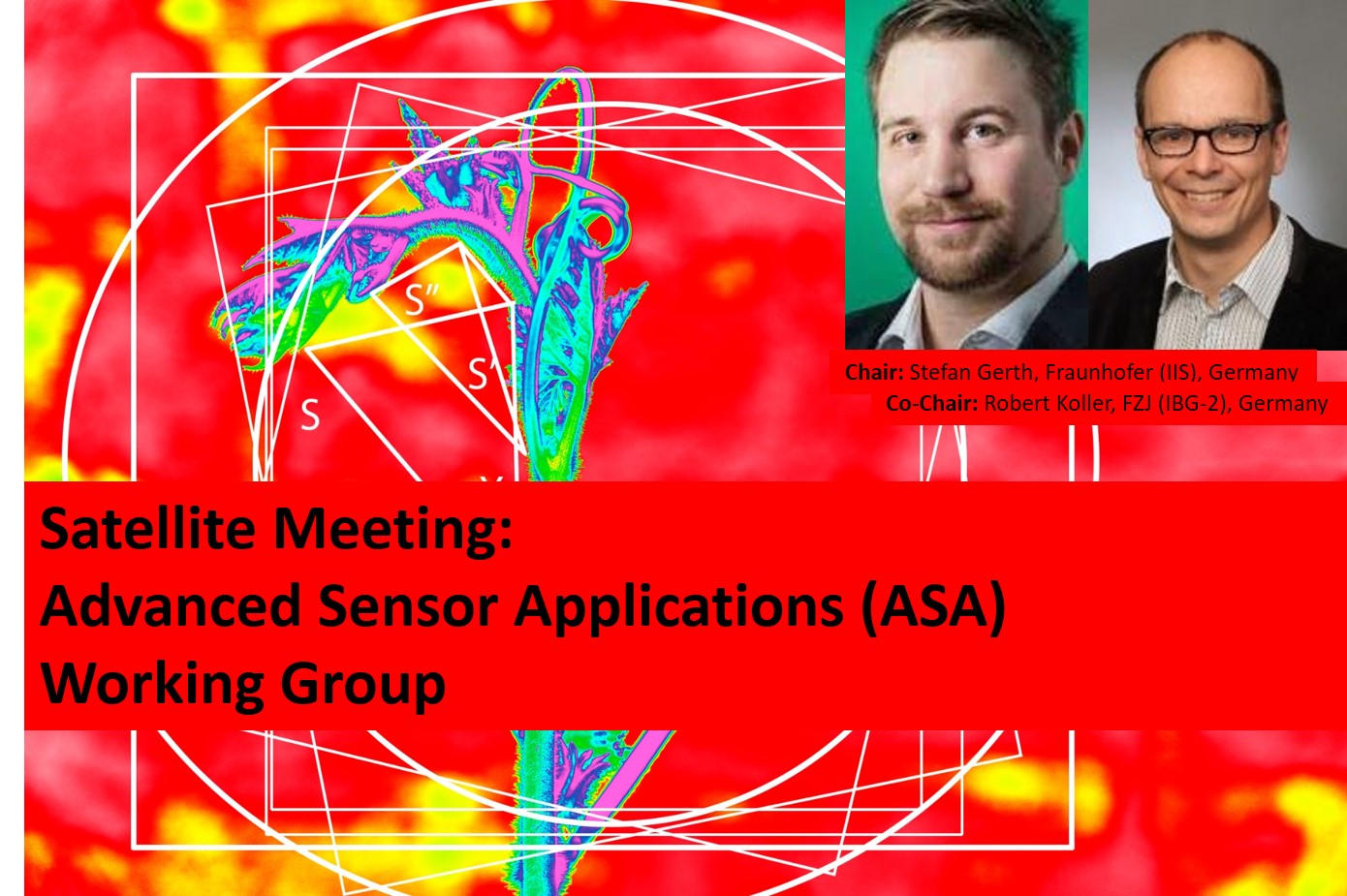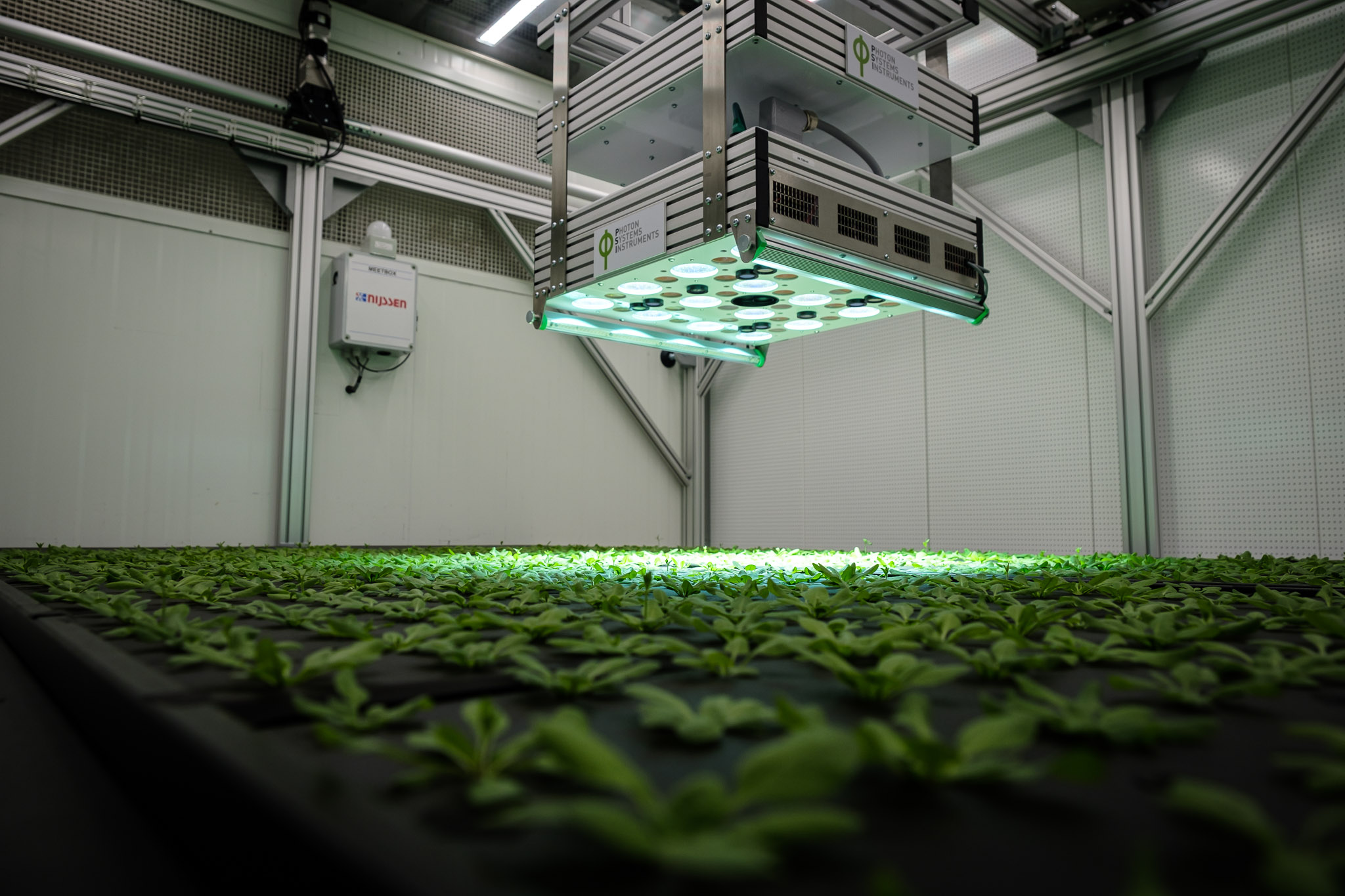The 7th International Plant Phenotyping Symposium, IPPS2022

7th International Plant Phenotyping Symposium:
"Plant Phenotyping for a Sustainable Future"
Food security, managing population growth and improving crop yields in the face of climate change are some of the greatest challenges facing our global society. We will need to produce food for 9.7 billion people in a sustainable way by 2050, whilst transitioning from a fossilbased economy towards a bioeconomy to mitigate the effects of global climate change.
This will require a fast increase in global crop productivity to produce enough plant biomass to achieve both food and nutrition security, as well as to meet the demands of a future bioeconomy. Crop production must be increased whilst maintaining crop quality. Society will require crops that combine sustainability, efficient use of scarce resources, e.g., water and mineral fertilizer, and are suitable for cultivation schemes and practices that preserve the Earth’s biodiversity. Current intensive cropping systems will need to become more sustainable, and more crop varieties must also meet the needs of the agroecology, organic and urban/vertical farming sectors. “Future-proofed” crops must have good yield stability with a high resilience to adverse climate, volatile weather conditions and biotic stresses. To meet these aspirations, both current and new crop plants need to be optimized and adapted which will require an ultimate effort both from the plant sciences as from the private sector. And in this process, the availability of versatile, high-throughput plant phenotyping methodology and infrastructure will be an absolute requirement for success. For this reason, we are very excited that over 400 scientists and members of the private sector have come to Wageningen to the 7th International Plant Phenotyping Symposium, IPPS2022, to present and discuss their latest results and developments in the field of plant phenotyping and to advance the field further towards a sustainable future.
Download Abstract Book
Monday 26th September
Day 0 - Satellite Meetings / Workshops
Phenomics for genebanks – future prospects (Seed and Germplasm Phenotyping Working Group – Workshop)

Summary: Gathering of genebanks and their frequent users interested in streamlining phenotyping of seeds and germplasm material using latest technologies and potentially set up global joint activities in this space
Recent advances in controlled environment phenotyping and lab-to-field translation (Controlled Environment Plant Phenotyping Working Group – CePPG Workshop)

Summary: Analyzing the phenotypes of plants growing under controlled environmental conditions is a requirement if one would like to investigate molecular-physiological mechanisms and biological processes of plant performance at the cellular, organ, whole plant, and canopy level. Use of controlled environments also enables repeated and independent testing of experimental outcomes, a fundamental requirement in research. Climate controlled plant cultivation facilities can furthermore be used to simulate future environmental scenarios to which plants need to be adapted to in order to achieve the required high performance and strong resilience. However, in the past, only little attention was paid to the fact that plants grown under usual controlled conditions can be phenotypically very different from those in the field. This workshop will explore recent advances to apply controlled conditions in such a way that experiments are repeatable and relevant to present and future field conditions.
- Richard Poiré (ANU) “Lost in translation – Challenges and opportunities in lab-to-field studies”
- Avat Shekoofa (Univ. of Tennessee) “Screening genotypes under induced water-deficit stress in controlled environments and field settings”
- Marc Heuermann (IPK) “The potential of the IPK PhenoSphere – field simulation in an indoor system”
- Jana Kholova (ICRISAT) “Controlled environment phenotyping to field translation: Heading towards technology-assisted crop improvement to accelerate breeding of climate smart crops”
- Francois Tardieu (INRAE) “Platform experiments to help interpretation of multi-site field experiments”
Advancements in Forest & Tree Phenotyping (Forest Phenotyping Working Group – Workshop)

Summary: During this workshop the FPWG will host a series of talks from leading international researchers on the current & future frontiers of forest & tree phenotyping. The workshop will also host an open discussion session before finishing, to provide opportunities for participants to interact and initiate lines of discussion and networks. From genetics through remote sensing to impactful data analysis, the workshop aims to present the latest tools and sciences that reveal the phenotypic traits of forests and trees.
Prof. Nicholas Coops (Faculty of Forestry, University of British Columbia, Canada)
Dr. Gancho Slavov
Halil Radogoshi (Swedish Forest Agency, Sweden) - Artificial Intelligence in Forestry
Affordable Plant Phenotyping Working Group Assembly (Satellite Meeting)
Summary: A working group assembly open to anyone interested in applying & design of affordable phenotyping solutions, with 6 talks & discussions, together with Chair elections.
- Rita Sylvester Archibong, « Affordable phenotyping » International Institute of Tropical Agriculture (IITA), Nigeria.
- Ayomide Kasali, Olaniyi Oyatomi, « Use or need of affordable phenotyping » International Instituteof Tropical Agriculture, Ibadan
- H. Bethge , T. Rath, T. Winkelmann « A low-cost multi-sensor system for automated in situ monitoring of plant in vitro culture ».University of Applied Sciences Osnabrueck, Germany.
- S. Seitner, « The ‘PHENOBox’, a flexible, automated, open-source plant phenotyping platform. »Vienna Biocenter Core Facilities (VBCF), Austria.
- Si Yang, Lihua Zheng, Minjuan Wang, Lasse Klingbeil, Heiner Kuhlmann « Computer vision based affordable phenotyping: from data acquisition to data analyzing. » China Agricultural University, Beijing, China; Bonn University, Germany
- H. Garbouge, Mouad Zine El Abidine, Pejman Rasti, David Rousseau, « lower image annotation cost with transfer learning » Université d’Angers France.
Elena Grosu, Dheeraj Rathore, Guiomar Garcia-Cabellos, Anne-Marie Enright, Ewen Mullins « Screening plant growth promoting bacteria using bespoke rhizoboxes for affordable root phenotyping »Teagasc, Department of Crop Science, Ireland
- Ji Zhou « Affordable phenotyping for cereal field phenotyping » Cambridge Crop Research, NIAB UK ; Nanjing Agricultural University China.
- Vinicius Munaldi Lube « MultipleXLab: A High-Throughput Imaging Platform based on Deep Learning to Assist in Selecting Important Plant Traits for Improved Crop Production » KAUST, Saudi Arabia.
Advanced Sensor Applications working group assembly (Satellite Meeting)

Summary: Assembly of the members of the working group & anyone interested. Presentation of the working group to the audience and definition of activities for the next period. The scope of the workshop is to update the members about the topics within the working group and to include everybody in the planning of the activities within the next year. Additionally, we will discuss how plant sciences could leverage from the physical sensor information in more depth for complex trait discovery.
Advances in plant phenotyping data management standard: the MIAPPE adoption status and perspectives

Summary: The workshop will feature talks and discussions related to the Minimum Information about Plant Phenotyping Experiment (MIAPPE) recommendations. The current adoption and use cases will be presented. Beyond this picture of the present status of MIAPPE, its future will be discussed, especially regarding upcoming activities and evolutions proposed by working groups, e.g. to enable advanced environment data exchange and integration.
Photonics for plant phenotyping (Agrofood Robotics & PhotonicsNL - Workshop)

Summary: Sensors play a key role in plant phenotyping, of which photonics-based sensors are the most represented. Think of spectral cameras, chlorophyll fluorescence, thermal cameras or Lidar. In this workshop photonics experts will discuss the technical backgrounds and new developments in photonics, with a link to applications in plant phenotyping.
This workshop is jointly organised by WUR Agrofood Robotics and PhotonicsNL.
- Opening - Gerrit Polder (WUR), Ron van der Kolk (PhotonicsNL)
- Keynote - Wouter Charle, IMEC, Snapshot advantage of spectral imaging enabling what is possible beyond plant phenotyping
- Carol de Vries, PhotonDelta and Lex Oosterveld, One Planet, Know what you produce; integrated photonics opens new and affordable ways to do it.
- Antoine Fournier, Arvalis, AgroPhotonics
- Pavel Paclik, PerClass, User-friendly spectral image interpretation in plant phenotyping
Measuring photosynthesis: bridging the gap between high and low throughput (WUR)

Summary: Screening large numbers of plants via high throughput phenotyping is an excellent method to study phenotypic and genetic variation. Yet, photosynthesis is difficult to characterize in high throughput phenotyping, as it is invisible and strongly environmentally dependent. Many methods to quantify photosynthesis and processes related to it exist, but currently only some of these can be used for ‘snapshot’ measurements. This workshop aims to list methods available to us for characterizing photosynthesis at the leaf, plant or stand level, and to find ways to bridge the gap between ‘slow and accurate’ and ‘quick and dirty’.
The workshop is intended as an inventory of the various methods used to quantify traits related to photosynthesis, with an emphasis on implementing these methods in high-throughput plant phenotyping. Methods will be compared on their advantages and shortcomings with regards to accuracy and speed.
We will start off the workshop by a series of short (10 min) talks on some key methods, including: i) chlorophyll fluorescence imaging, ii) photosynthetic gas exchange, iii) hyperspectral imaging, iv) stomatal conductance phenotyping (including but not limited to thermography), and v) absorbance change imaging. Then, participants are split into several groups for round-table discussions, where they are asked to list and discuss advantages and disadvantages for given methods. Finally, results from the different groups will be brought together in one big overview, and discussed. A final deliverable of the workshop could be a large poster that presents an overview of the status quo and future directions, which could be presented at the main symposium in the days after the workshop.
- Prof. Dr. Marek Živčák – Slovak University of Agriculture - Chlorophyll fluorescence imaging
- Dr. Silvère Vialet-Chabrand – Wageningen University & Research - Stomatal conductance phenotyping
- Dr. Steven Driever – Wageningen University & Research - Photosynthetic gas exchange phenotyping
- Dr. Jeremy Harbinson – Wageningen University & Research – Absorbance change imaging
- Prof. Dr. Uwe Rasher - Forschungszentrum Jülich - Hyperspectral imaging
IPPS2022 Main Program
September 27
Day 1
Session 1: Climate change & Photosynthesis
Session chair: Mark Aarts
Keynote; Stephen P. Long
- The Sound of Photosynthesis;Martin Trtilek
- Forced Oscillating Light - A Method to Study Regulation of Photosynthesis in Dynamic Environments; Yuxi Niu
- The happy marriage between phenotyping and genetics: the key to unravel natural variation for photosynthesis; Tom Theeuwen
Poster flashes 1
Session 2: Plant Development & Allocation
Session chair: Xavier Draije
Keynote; Tracy Lawson
- An automatic phenotyping pipeline to track maize organs over time; Benoit Daviet
- Exploring the potential of using UAV phenotyping platforms to support breeding for improved root systems; Yichen Kang
- Automated analysis of root growth development using x-ray technology; Joelle Claussen
Poster flashes 2
Poster session 1 (odd numbers) and drinks
IPPN General Assembly
September 28
Day 2
Session 3: Microbiome, ecology & biotic interactions
Session chair: Corné Pieterse
Keynote; Gert Kema
- Combinatorial study of the impact of drought on barley resistance against fungal pathogens by high-throughput multispectral, microscopic and physiological phenotyping; Chandana Pandey
- At the crime scene of a cereal killer: How multispectral imaging can advance insights in the fusarium head blight disease complex in wheat; Noémie De Zutter
- Microbiome-based prediction of potato phenotype in the field; Yang Song
Poster flashes 3
Session 4: Modelling of physiological & ecological processes
Session chair: David Rousseau
Keynote: Junqi Zhu
- Effects of Free-Air Carbon Dioxide Enrichment (FACE) on Photosynthesis, Phenology and Yield of Winter Wheat; Oliver Michael Knopf
- “I spy with my little eye …“- Using phenotyping tools and machine learning to improve robustness in plant based recombinant expression systems; Frederike Stock
- Mechanistic insights on chlorophyll a fluorescence advance the quest for the Holy Grail in phenotyping; Carmela Rosaria Guadagno
Poster flashes 4
Poster session 2 (even numbers) and drinks
EMPHASIS Phenotyping Networks Sessions (representatives of national networks only
September 29
Day 3
Session 5: Food & Bio-economy
Session chair: Ulrich Schurr
Keynote; Lee Hickey
- Morphological evolution during wheat domestication and the potential for further yield gains; Yixiang Shan
- Understanding the genetics of canopy dynamics using longitudinal UAV data in mungbean; Shanice Van Haeften
- EPPN2020/FloweringUnderStress – Sensor and deep physiological phenotyping of terminal drought and heat-effects on chickpea flowering, seed yield and quality; Thomas Roitsch
Poster flashes 5
Session 6: Sensors, Robotics & Automation
Session chair: Tony Pridmore
Keynote; Cyrill Stachniss
- Assessment of kernel presence in winter wheat ears at spikelet scale using Near-Infrared Hyperspectral Imaging; Damien Vincke
- Leaf shape phenotyping method by instance segmentation and curve-based 3D reconstruction; Hidekazu Murata
- Recent development and potential usage of MultiSpectral LIDAR; Antoine Fournier
Poster flashes 6
Conference Diner & Party
September 30
Day 4
Session 7: Informatics, Data & Analytics
Session chair: Jennifer Clarke
Keynote; Emilie Millet
- Weakly Supervised Semantic Segmentation of Multi-Species Canopies using Active Learning and Fully Convolutional Neural Networks;Charles Rongione
- Channel Attention-GAN based Synthetic Weed Generation for precise Weed identification; Tang Li
- Using Deep Learning (DL) to Improve Segmentation from RGB and Hyperspectral Imaging Data; Jason Walsh
Closing of IPPS2022
Excursions (field trips and cultural visits)
